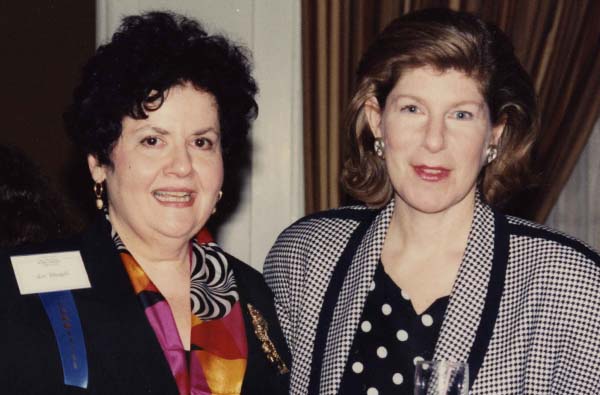
Rauh Jewish Archives at the Heinz History Center
Nathan M. Katz (c.1899-1950) immigrated to Pittsburgh from Poland in 1905. His mother was a concert pianist who had studied with the grandson of Pyotr Tchaikovsky. Katz attended the Franklin School and Fifth Avenue High School. After working his way through the Duquesne University School of Law, he was admitted to the bar in 1922.
In 1927, Nathan Katz married Bessie Rosenburg. Her parents, Anna and Henry Rosenburg, had immigrated to London from Russian Poland. They were married at the Great Synagogue of London. Their marriage certificate was signed by Rabbi Solomon Levy, the father of Rabbi J. Leonard Levy of Rodef Shalom Congregation of Pittsburgh, and Cantor Marcus Hast. They later moved north to Ebbw Vale, Wales, where their daughter Bessie and son Sidney, were born. The family eventually immigrated to Western Pennsylvania and started a jewelry store in the coal-mining town of South Fork, Pa., near Johnstown. “My father was frequently consulted by the United Mine Workers on various issues,” Bessie Rosenburg Katz said in a National Council of Jewish Women oral history. “He was very sympathetic to the problems of coal miners, having been exposed to them in Wales. I would sit in the back of the silver cases, which had deep drawers. My father would place me in a drawer, and I’d hear them talk.” Henry Rosenburg was the first Victor Victorola-Edison dealer in the area. “When I was thirteen, I catalogued the Red Seal Label records for my father,” she said. “Before I did each record, I would sit glued to the opera books, to see who the artists were.”
Although it was unusual for a girl at the time, Bessie Rosenburg attended religious school as a child. “I began to show an interest in social problems while I was still in high school,” she said. “My high school graduation speech was ‘The Plight of the Rural Schools,’ which I developed as I understood it.” She wanted to study journalism at Columbia University, but attended the University of Pittsburgh instead because her parents wanted their children to attend college close to home. She graduated early and enrolled in law school then delayed her studies to become a case worker for the Jewish Family Welfare Bureau. She later made another attempt to study law, but abandoned those plans at the objections of her fiancé and became a social worker instead. During the 1930s, she was a volunteer inspector of beauty parlors for the Pennsylvania Department of Labor and helped improve working conditions and sanitation in the shops. As a volunteer for the National Council of Jewish Women, she devoted significant time to Service to the Foreign Born, a wartime program to help European refugees start new lives in Pittsburgh. She helped moderate a panel discussion called “Integration of the New American in the Community,” which allowed those refugees to discuss their frustrations and difficulties.
In the 1930s, Nathan Katz was a deputy attorney general responsible for managing the claims on closed banks. Pittsburgh Mayor David L. Lawrence later asked him to consider serving a judgeship, but Nathan Katz died before he could pursue the opportunity.
While continuing his law practice, Katz participated in many Jewish causes and wrote on Jewish history, folklore and culture. He led the United Jewish Fund campaign during the crucial years following World War II, when the organization was increasingly turning its attention to international issues brought about by the conflict. His greatest ambition was to promote understanding among religious and racial groups. As head of the regional chapter of the B’nai B’rith and its Anti-Defamation League, he arranged a 1935 radio symposium on KDKA during which Jewish, Catholic and Protestant leaders spoke on “interdenominational good will.” In 1947, Mayor David L. Lawrence appointed Katz to his Civic Unity Council. Through these groups, Katz addressed Jewish issues, as well as problems facing the local black community and concerns about unemployment.
“As elated in spirit as he often was in public, so profoundly depressed was he frequently in private,” Samuel L. Fuss wrote in a 1951 memorial to Katz. “He was essentially a social being, and required the stimulus of the group to become inspired and inspiring.”
Their daughter Lois Katz Blaufeld owned New Achievement Strategies, a Pittsburgh consulting firm for non-profits. In the early 1990s, New Achievement Strategies managed two major history projects focusing on women. The First 100 Women Lawyers and The First 100 Women Physicians presented profiles of the first 100 women admitted into the medical and legal professions in Allegheny County.
